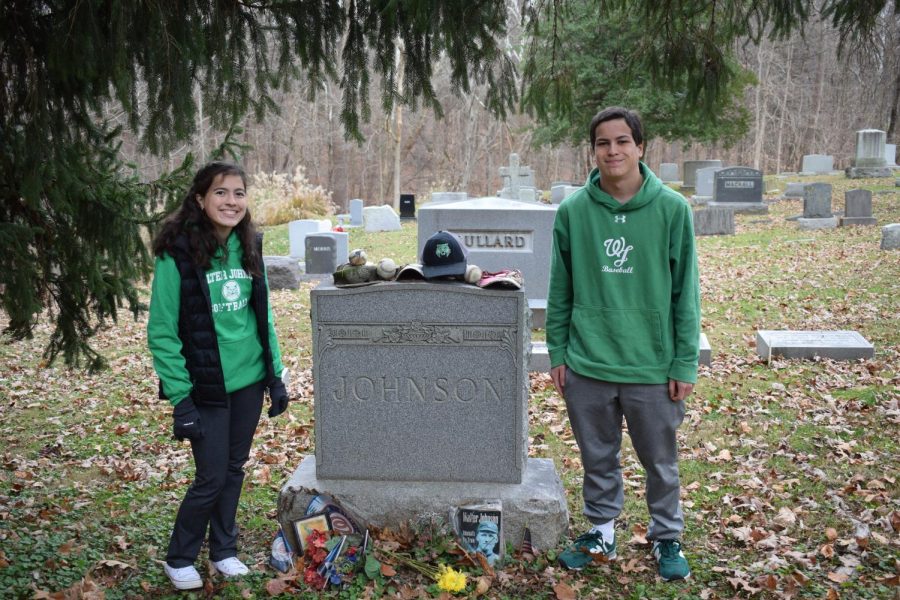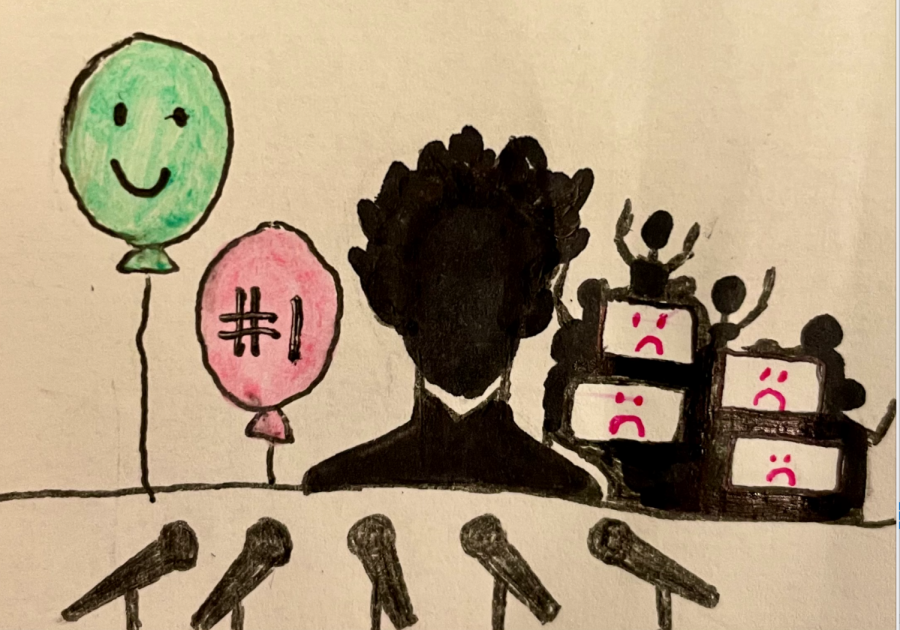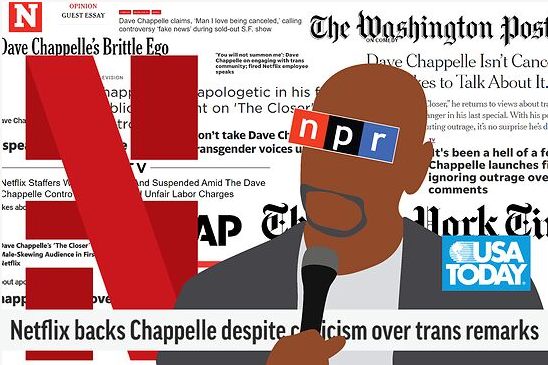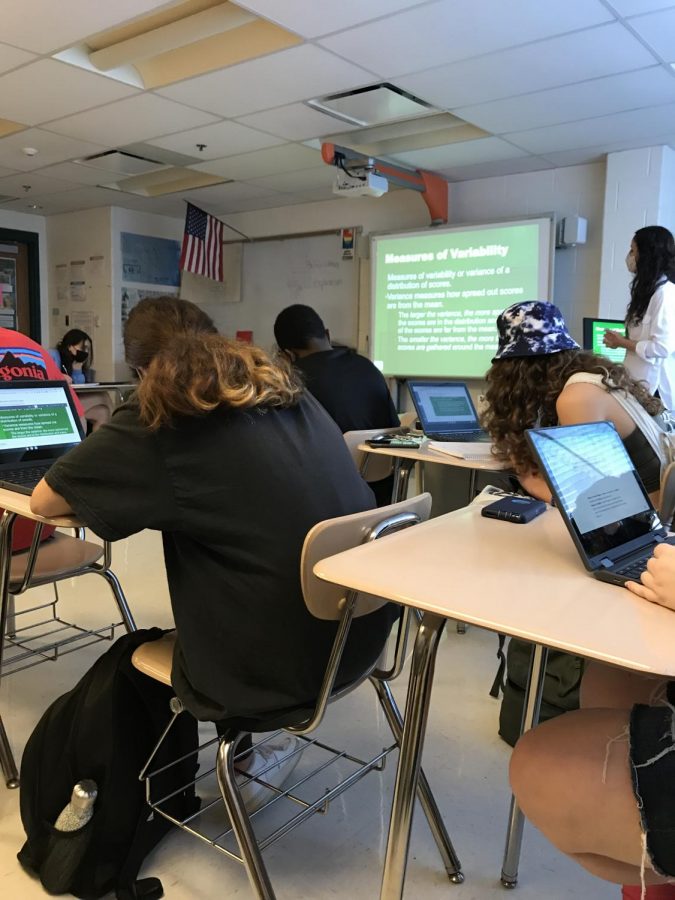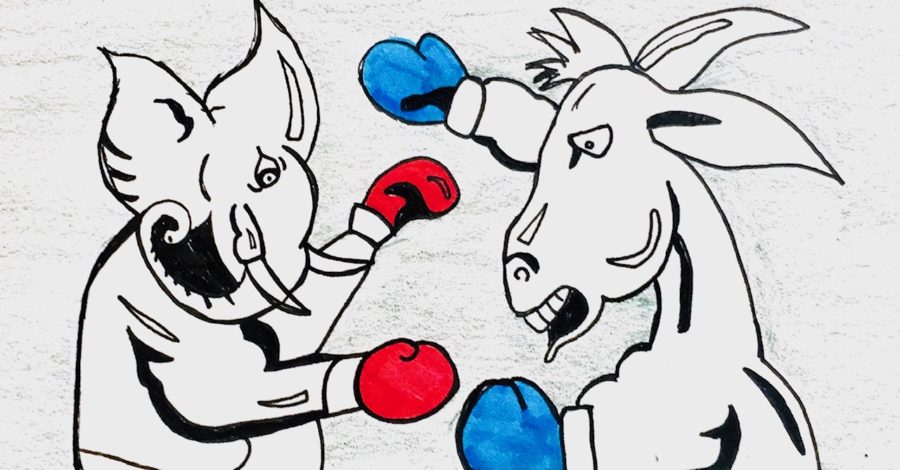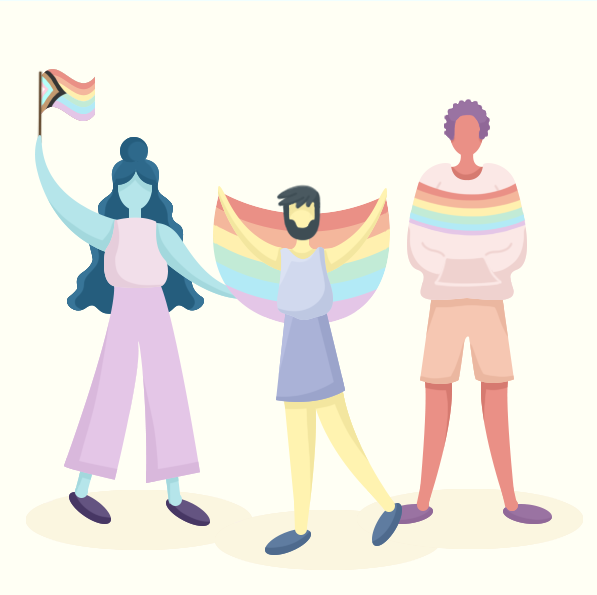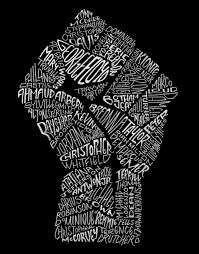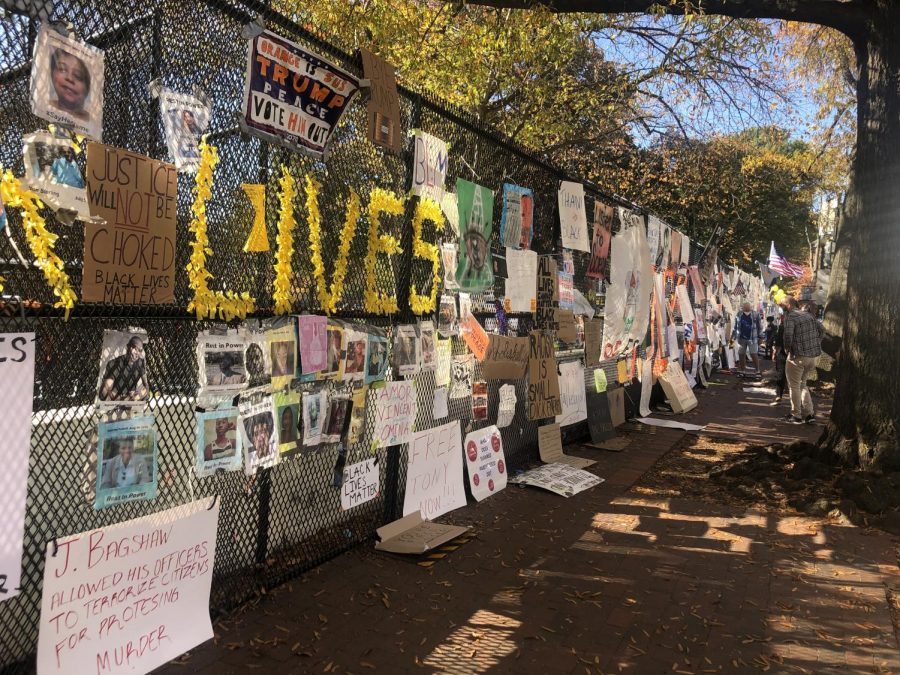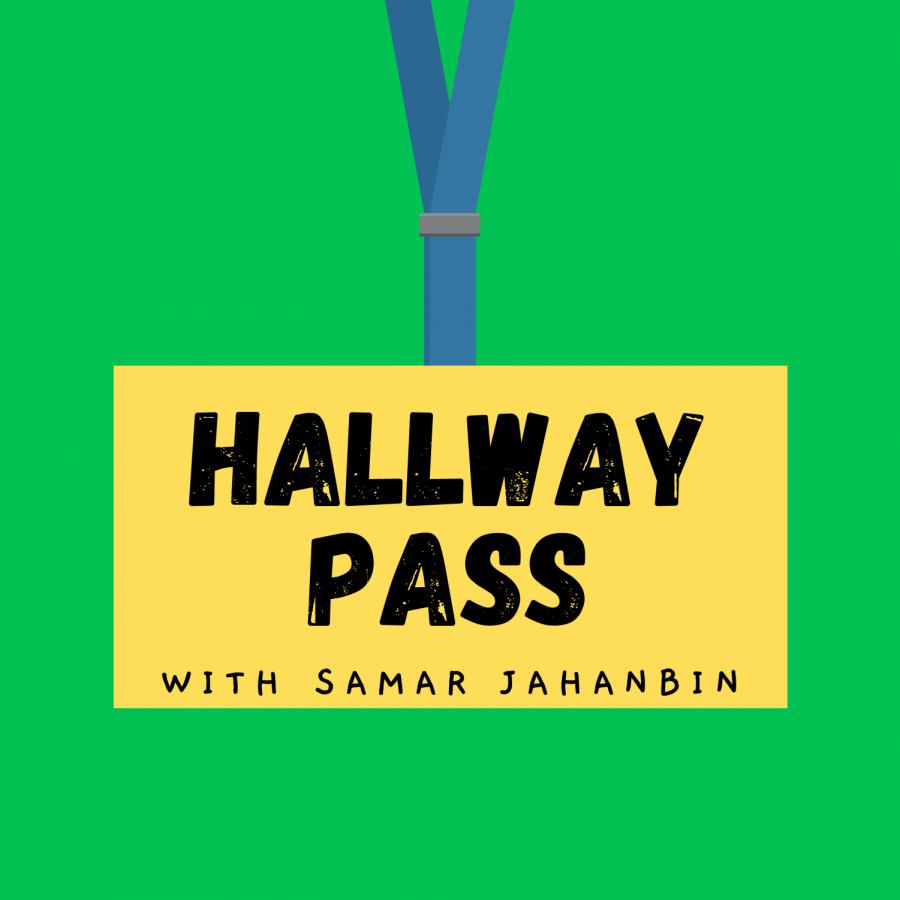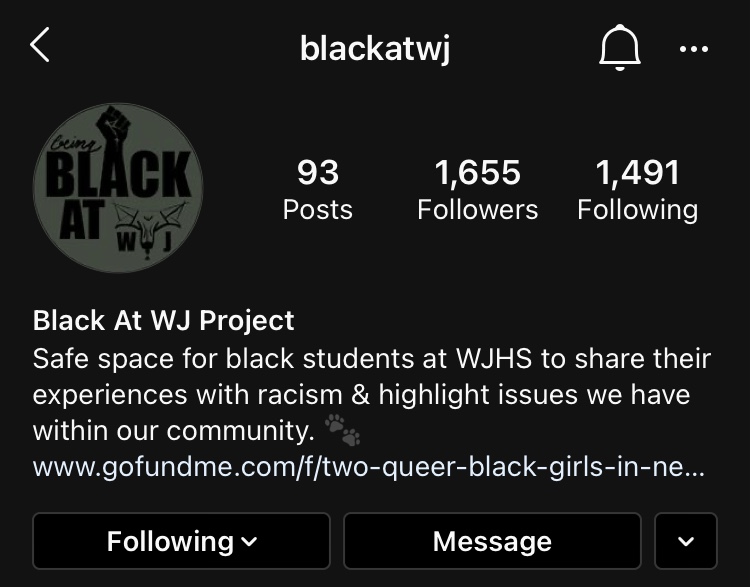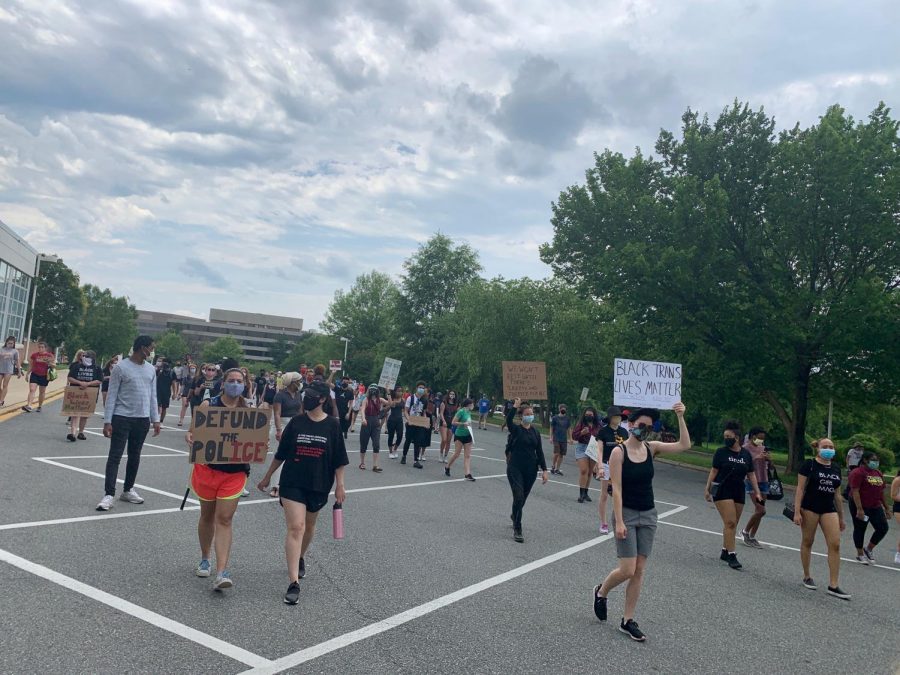“Coming out” is a concept as familiar to our modern society as sliced bread, but familiarity doesn’t imply a positive connotation. As more and more labels are embraced by the LGBTQ+ community, a paradox arises: do queer individuals even want to use labels to define their sexuality? To investigate this nuance further, several queer-identifying WJ students were asked questions on the intersection between identity and labels.
If you do not use a label, why not?
“I don’t feel a strong need to attach myself to a particular sexual orientation. Some find security and comfort in labeling themselves — I completely get that. For me, however, I rather accept my preferences as they come and go.” Ellie Greenberg, Grade 12
If you “came out” to a close friend, relative, etc, how did you do it?
“When coming out to people close to me I first reiterated that I was the same person that I’ve always been and then explained it as ‘one day I might marry a man, woman, or non-binary person.’” Anonymous, Grade 11
“The way I came out was I literally just went up to the person and was like “hey, I’m gay.” I don’t remember it exactly but I do know that there wasn’t any like beating around the bush or anything.”
Ela Crothers, 10
“It is a hard question because it really depends on the situation. I don’t ‘come out’ but when I do, I try to be as natural and unapologetic as possible. I’ll probably make a comment such as ‘Oh, by the way, I’m pansexual’ and then move on from there. Sometimes people will ask me what it means and then we talk about something else, but I never “come out” if I am not comfortable with the person.”
Camille Lorillou, 11
“I guess [it] was over FaceTime with my best friend, we were joking around and then she made a joke that she wished she liked girls and I just blurted out that I think I do. Then she asked me if I was bi and I said yes. After that, I usually came out to people by saying ‘I like boys and girls’ or just saying I’m bi.” Anonymous, Grade 12
“I pretty much just said “I’m gay” when I came out to my mom, dad, and siblings. I knew they would be supportive but there’s always that chance that they wouldn’t be. The pause after I told them was one of the scariest moments of my life.” Nora Tallbott, Grade 12
“Recently, when I came out to a family member, I explained that I was involved with a member of the same sex. It was important that I didn’t attach myself to one orientation.” Ellie Greenberg, Grade 12
“I tried to somewhat control who knew until I proceeded to be outed, including some harassment from people from school, which was around when I began joking more about my sexuality, referring to myself as a dyke so at least I was the one saying it rather than other people. I’ve yet to come out to my parents, because frankly it’s not their business. Whenever I bring a girl home and introduce her as my girlfriend, then they’ll know.” Ava Powell, Grade 12
“I personally believe that ‘coming out’ is dehumanizing. To me, ‘coming out’ reinstates the fact that someone being queer is abnormal and that this part of themself makes them ‘different’ and thus needs to be known by everyone. I do not believe that any aspect of this is true and that is why I have never, and likely will never, officially ‘come out.’ However, I do believe that ‘coming out’ can be helpful for those who are important in your life and for that reason I have talked with a couple members of my family and close friends about my sexuality. I wouldn’t call this ‘coming out’ because I don’t use labels and thus it’s not as much “coming out” as it is simply explaining that I am attracted to people besides those of my opposite sex. To this small group of people I chose, I simply explained to them my ideas on sexuality being fluid, how I still am dealing with the effects of heteronormaty, and that I am attracted to people besides just those of my opposite sex.” Isabelle Ragheb, Grade 12
“So I’m both transgender (ftm) as well as bisexual. When I first came out as trans, it was middle school and before each class, the teacher allowed me to stand up and announce my identity. In freshman year I met a lot of new people and though I had been going by he/him for a few years up to that point, because I was misgendered constantly, I had to actually come out to a bunch of new people. For some, it was as easy as correcting their pronoun uses, others I had a private conversation with. I had a hard time correcting people verbally because I’m pretty shy, so I ended up writing a lot of notes. I also posted on pride about my trans experience just so I could have some people be aware of it, though I don’t usually do any sort of coming out story shares or anything like that because I prefer people not to know. I only told these people because they were misgendering me, but now that I pass comfortably as male, I find that a lot of people don’t know I’m trans.” Anonymous, 11
If you use a label, do you feel that it helps others better understand you and your sexuality?
“I use a label mainly because most people that I come out to (my parents) don’t understand not having a label. I think generally if I had to choose a label I would use queer, but bisexual works and most people understand it better.” Anonymous, Grade 12
“[The term] Bisexual is pretty easy to explain to people, although I might be technically ‘pansexual,’ its debated on whether being bi includes NB [non-binary] people or not, which I’ve decided it does.” Ava Powell, Grade 12
“I think it helps those who do not consider themselves part of the LGBTQ+ community.” Nora Talbott, Grade 12
“I think it does and it doesn’t. I think that labels are kind of an oversimplification of how complex sexuality can be, but they also allow you to share something about yourself more without getting deep into the complexities of it.” Anonymous, Grade 12
“Yes, I think it makes me feel like I’m part of a cohort within the greater LGBTQ+ community.” Naomi Johnson, Grade 12
How have the use of labels within the queer community allowed you to come to terms with your own sexuality?
“I never considered myself queer but labeling myself bisexual got me more comforatable accepting I wasn’t straight. Eventually this led me to come to terms with the fact that I’m a lesbian.” Anonymous, Grade 12
“Labels within the community definitely helped me come to terms with my sexuality in some ways, but have also contributed to a lot of internalized homophobia for me…It’s hard because I would say that “pansexual” is a better way to describe me, but many people within the queer community say that pansexuality is the same thing as bisexuality or is that label is biphobic and therefore shouldn’t be a thing. This definitely has contributed to me struggling with my identity and I have considered abandoning labels altogether because of some of the disputes over labels.” Anonymous, Grade 12
“Honestly, the use of labels kind of inhibited me from coming to terms with my own sexuality. I have a lot of internalized homophobia especially around the word lesbian because of how many times I had heard it used derogatorily towards me from other kids in school. Even today I still have trouble saying lesbian out loud.” Nora Talbott, Grade 12
“Labels — though not currently necessary for me at the moment — absolutely allowed me to come to terms with my sexuality. I wouldn’t have known that there was a community of people like me if it weren’t for those labels” Ellie Greenberg, Grade 12
“Growing up my only “bisexual” friend was a boy who actually identified as gay, but told me bisexual was simply a stepping stone for coming out as gay. So it definitely took me some time to understand what my label meant, and ultimately becoming comfortable with my sexuality required a lot of introspection past my simple label.” Ava Powell, Grade 12
“I think when I first started realizing that I am attracted to people besides those of my opposite gender, labels did help me come to terms with my sexuality. The analogy I like to use is that at first, labels were like training wheels on a bike, they helped me get started and made me feel more supported and safe. However, as I matured and became more comfortable with myself, I didn’t feel like I needed them anymore so I took them off.” Isabelle Ragheb, Grade 12
Do you feel that it’s important that other people use labels to describe their sexuality? Why or why not?
“I don’t think that using labels is very important because it gives people the idea that you have to have everything figured out.” Anonymous, Grade 11
“As for being bisexual, this isn’t something I openly admit and have only come out to about to very, very close friends. My family is aware, but aside from a handful of close friends, nobody else knows. It’s something I don’t feel is relevant; if people ask I tell them plainly my sexual preferences however I avoid outing myself if not prompted.” Anonymous, Grade 11
“In general, I do not think that labels are important as they can change and they are not definite. In our society, we class people in certain boxes and force them to wear a label and follow it. But those labels do not fit everyone and are often extremely harmful. People should be free to explore their sexuality and gender without having to label themselves. However, labelling yourself can also be very freeing as you discover a part of yourself and you feel like you know yourself better. By knowing their label, people can gain confidence and clarity that they do not have without the label.” Camille Lorillou, Grade 11
“I think people should do whatever they’re comfortable with, for some it may be more uncomfortable to be confined by a label, but for me I feel like it gives me a name for something that I feel and that’s comforting.” Naomi Johnson, Grade 12
“I don’t think it’s important to use labels. Sexuality is a spectrum and a lot of people don’t want to be confined to one label. It’s really not anybody’s business what you identify as but your own.” Nora Talbott, Grade 12
“Let’s say you really like orange juice as opposed to apple juice, so you proclaim yourself an ‘orange juice lover.’ Then years down the line you realize you actually like the taste of apple juice a smidge better. This is an awful metaphor, but what I’m getting at is that sexuality is fluid. Ever-changing. In my opinion, labels put an awful lot of pressure for people to define this part of themselves that shouldn’t need to be so dramatically defined.” Ellie Greenberg, Grade 12
“It’s totally a personal choice. Labels can be meaningful as they allow people to give themselves a name and a community, but to others they may seem constricting, like you have to make a decision on who you are.” Ava Powell, Grade 12
“I think when I first started realizing that I am attracted to people besides those of my opposite gender, labels did help me come to terms with my sexuality. The analogy I like to use is that at first, labels were like training wheels on a bike, they helped me get started and made me feel more supported and safe. However, as I matured and became more comfortable with myself, I didn’t feel like I needed them anymore so I took them off.” Isabelle Ragheb, Grade 12
What predictions do you have for the state of sexuality ten years from now? How will stigmas and perceptions change?
I feel like in ten years there will not be much progress for lgbtq+ people. I think everything will be more or less the same, maybe there would be people being more accepting and open minded but I don’t think it’ll be a big increase or anything.” Ela Crothers, Grade 10
I’m someone who believes that everyone is inherently a little bisexual, so I think that this will be a more normal standard in the future. Maybe not as soon as within the next 10 years, but I do think that we’ll start to move away from heteronormative assumptions. As far as stigmas, I hope that we can see lgbt identities as, well, different and just assume them to be common. I’d love to see parents choose gender neutral names for their kids (I know I will be!) and with advancing surgeries and medical practices, I hope for future generations of trans kids their transitions can be more seamless than mine.” Anonymous, Grade 11
“I think that 10 years from now, the stigma around sexuality will be much less than it is now. I hope to see a decline in heteronormativity and the use of “straight” as the default. I also think that we may move away from labels as we recognize that not everyone fits into specific categories.” Anonymous, Grade 12
“There will still be stigmas and discrimination against the LGBTQ+ community in ten years, but as it is moving in the right direction, I believe it can only get better from there. Just in the US, gay couples could not marry ten years ago, but today are able to adopt in most states and marry legally. We still have a long way to go to decriminalize homosexual couples and accept them within society, but I really believe that as people hear more about it, they will understand us better and learn to respect us for who we are.” Camille Lorillou, Grade 11
“I especially hope there would be more LGBTQ+ representation in the media so that kids can see that being queer isn’t weird or taboo.” Nora Talbott, Grade 12
“The state of sexuality will most likely become less taboo. Labels may become ambiguous and people may feel they don’t have to label themselves because while I think labels can be empowering, for others it may tie one down.” Anonymous, Grade 12
“I would hope that people feel less of a need to label themselves.” Ellie Greenberg, Grade 12
“Based on all recent human history, stigma against queer people will likely lessen as time goes on, at least in America. However, as we’ve seen by several decisions made by the administrative powers in our country the past four years, the struggle for true equality is far from over. Homophobia, like all the faults of our society, is deeply connected to other faults. Continued racism, sexism, classism, ext. in America will continue to aid in the upholding of homophobia. That being said, in ten years I am hopeful there will be less stigma around same sex parenting, more representation of queer people in media, including children’s media, as well as an increase of queer people in political positions. Heteronormativity, or the view of straightness as the “default” will likely persist through the next decade.” Ava Powell, Grade 12


































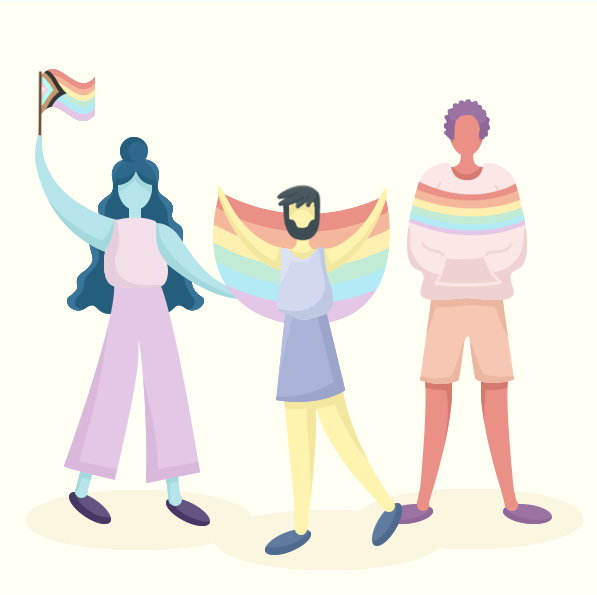
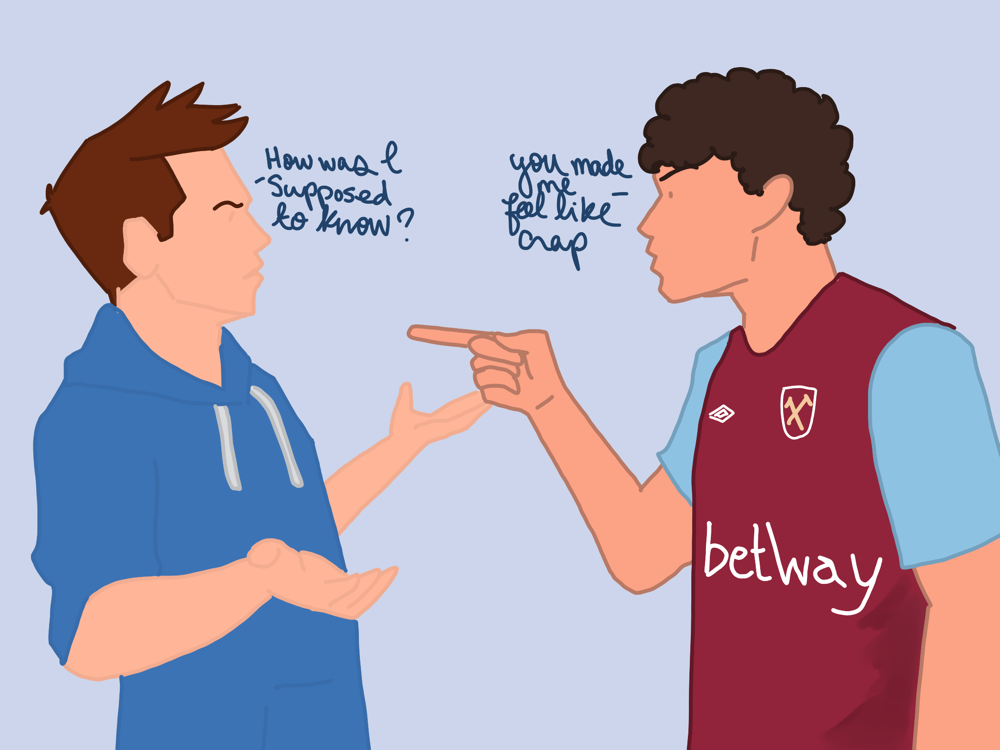
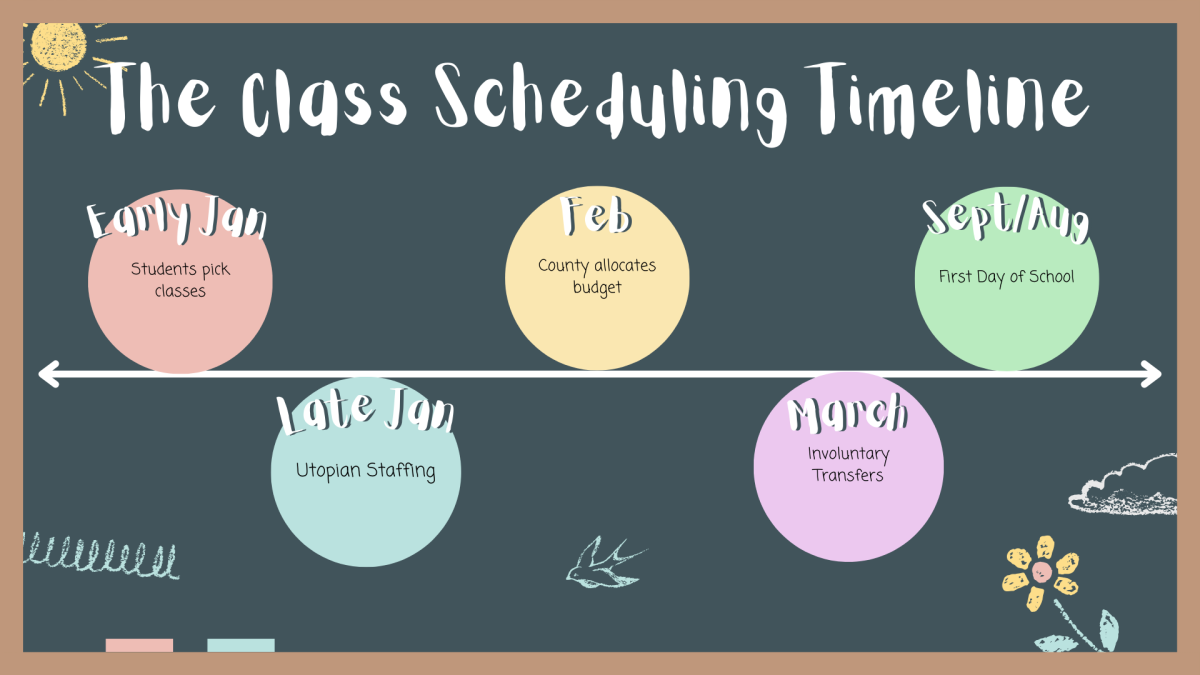
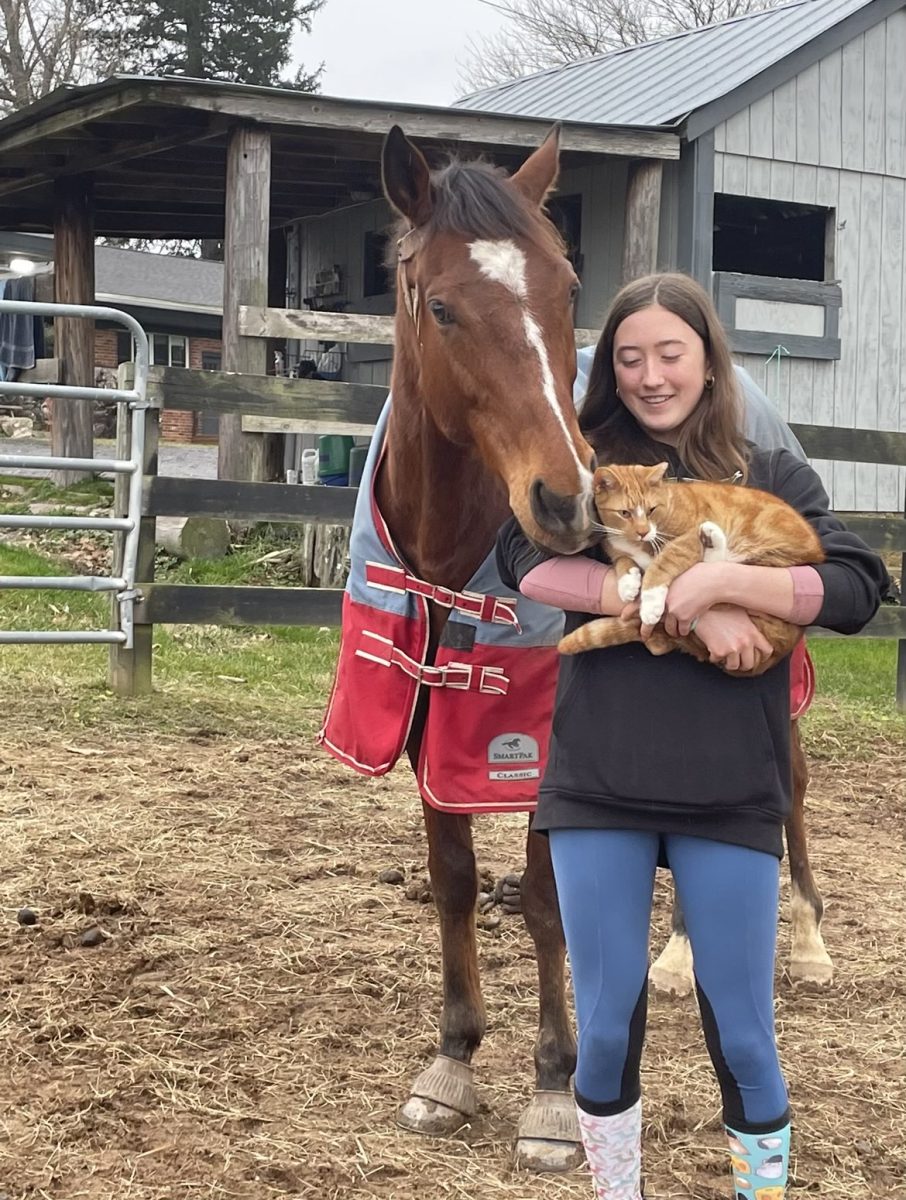
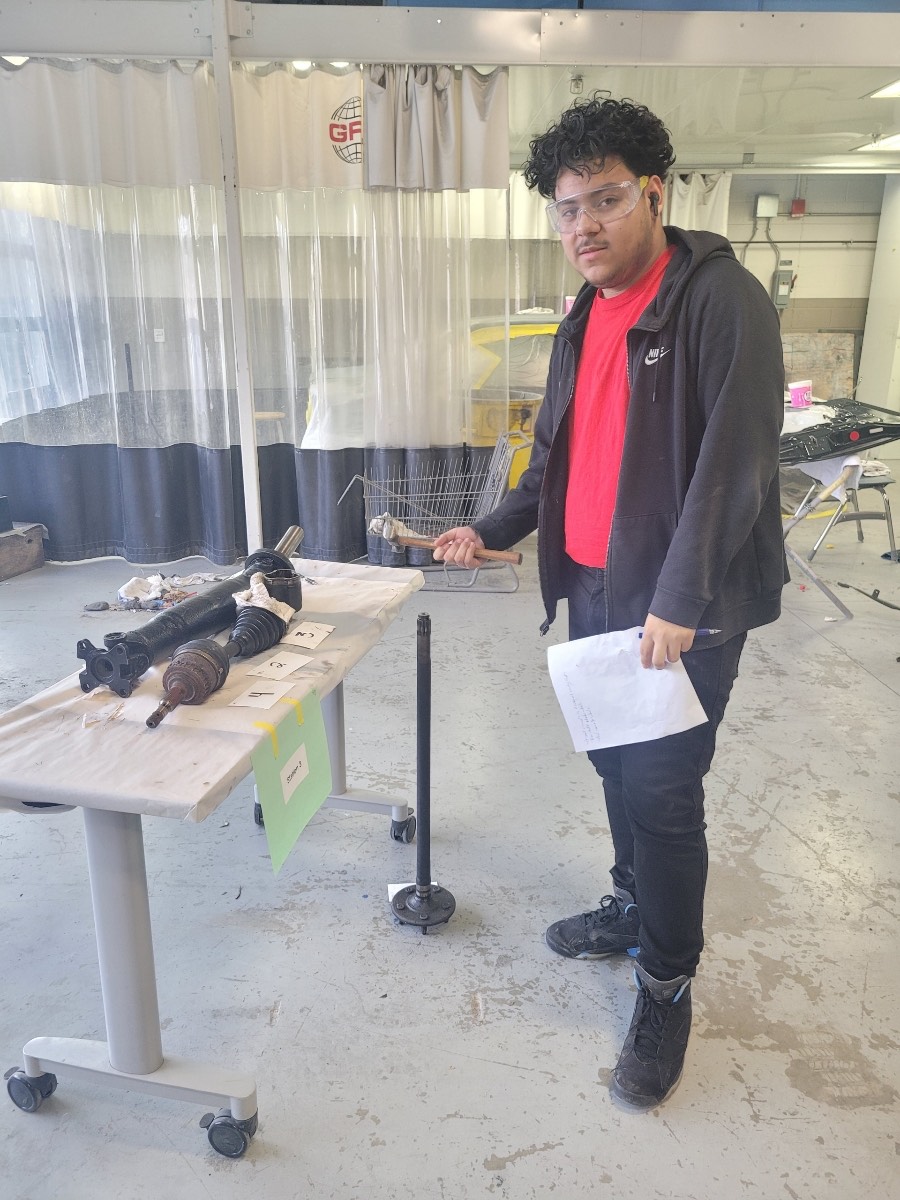
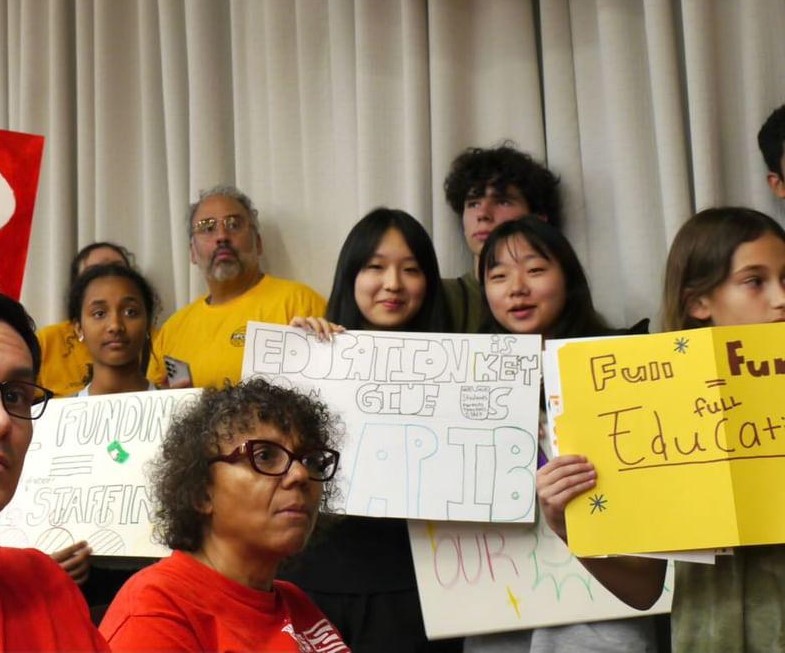
![Senior Tiffany Gibson has dinner with her parents and her nine year old sister. Gibsons family has been her largest source of support throughout her treatment process.
[My dad] helped me through it. He was the one who’d take me to my doctor’s visits, he was trying to make me try to take my medication on time, even though he’d get angry when I didn’t take it. I had to do blood work, so he would always find out. He would always try to get me to take it and remind me, Gibson said.](https://www.wjpitch.com/wp-content/uploads/2023/03/92iA4Tg7fGWMhmk9DKWf7Q6UQQ4p0LYeBobwwvV7-900x672.jpg)
